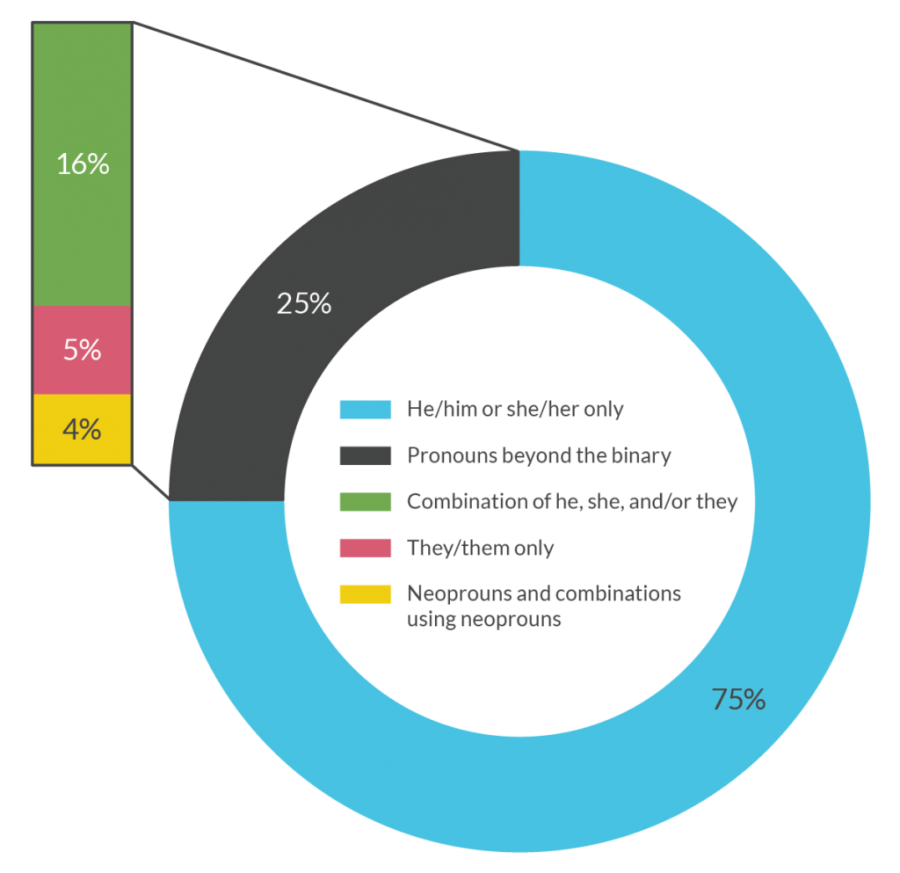‘They’ deserve to be respected
Recently, there has been a surge of people using they/them pronouns.
You can find “they/them” in bios on social media and even in more professional settings such as Zoom usernames and emails. You might even know someone that uses they/them pronouns.
However, with the surge of they/them pronouns came a surge of controversy as to whether or not they are “valid.” People often argue that they/them pronouns are unnecessary and aren’t grammatically correct.
Typically, those who use they/them pronouns label themselves as non-binary. This means they do not identify as exclusively feminine or masculine.
It can also mean they feel either both feminine and masculine energies combined or none at all. In essence, they are gender neutral.
Despite what some people believe, they/them pronouns are grammatically correct.
Although this surge of they/them pronouns being linked to one person seems rather recent, it goes back to 14th century writing. According to the Los Angeles Times, “Literary giants Emily Dickinson, William Shakespeare, William Wordsworth and Geoffrey Chaucer all used singular they in their writing.”
And no, just because big writers in the past did something a certain way does not mean it is correct. But, think of your own usage of they/them pronouns.
Whenever you don’t know or want to disclose someone’s gender that you are talking about, you resort to they/them pronouns.
For example, “My sister’s friend is taking her to the game. They are picking her up at our house.” The gender of your sister’s friend is unknown, so “they” was used to refer to said person.
It’s an easy, effortless switch that didn’t cross your mind twice.
I personally do not find it to be that difficult to turn to they/them pronouns when someone has requested them.
As long as you are actively trying, you should be fine. You probably will slip up. Just correct yourself and move on.
Continuing to educate yourself as to why people use they/them pronouns is important. More information comes out all the time, so just stay up to date.
Also, just talk to people who use they/them pronouns. Everyone is different. Some people might not like gendered terms such as sir or ma’am, while others don’t care.
No matter someone’s reasoning behind using they/them pronouns, their requests should be adhered to.
At the end of the day, if using they/them pronouns for someone is such an issue for you, then refer to them by name.
After all, pronouns are optional in use.





